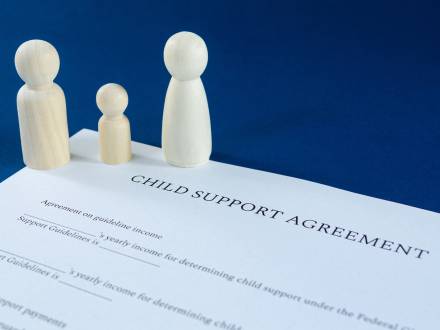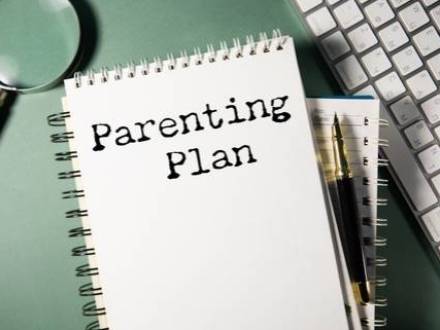Recent Blog Posts
Is My Prenuptial Agreement Valid in Illinois?

Prenuptial agreements have become increasingly common. They can be a good tool for protecting your assets in the event of a divorce. Not all prenuptial agreements are enforceable in Illinois courts in 2026, though. An Orland Park family law attorney can review your prenuptial agreement and advise you on whether it will hold up in court.
What Makes a Prenuptial Agreement Valid in Illinois?
A valid prenup must meet specific legal requirements in the Illinois Uniform Premarital Agreement Act (750 ILCS 10):
Is the Right of First Refusal Required in an Illinois Parenting Plan?
 When parents split up or divorce, balancing child care responsibilities becomes more complicated. You may worry about not seeing your children as often as you did before or who will care for them when your co-parent is unavailable. In Illinois, one way to address these concerns is something called the "right of first refusal." If you are navigating co-parenting arrangements in 2026, our Joliet child custody lawyers can help you understand the right of first refusal and its results.
When parents split up or divorce, balancing child care responsibilities becomes more complicated. You may worry about not seeing your children as often as you did before or who will care for them when your co-parent is unavailable. In Illinois, one way to address these concerns is something called the "right of first refusal." If you are navigating co-parenting arrangements in 2026, our Joliet child custody lawyers can help you understand the right of first refusal and its results.
What Is the Right of First Refusal in Illinois?
The "right of first refusal" is a rule in parenting plans that basically says that if you can't watch your kids during your scheduled parenting time, you must ask the other parent if they want to take the kids before getting a babysitter or leaving them with someone else.
Taking the First Steps to Leave an Abusive Relationship
 Domestic violence affects people from all walks of life. It does not matter what someone looks like, where they come from, or how much money they have. Abuse can happen to anyone. According to the Illinois Coalition Against Domestic Violence, one in three women and one in seven men experience domestic violence.
Domestic violence affects people from all walks of life. It does not matter what someone looks like, where they come from, or how much money they have. Abuse can happen to anyone. According to the Illinois Coalition Against Domestic Violence, one in three women and one in seven men experience domestic violence.
Abuse is not just about hurting someone physically, though. There are many different types of abuse. Knowing the warning signs can help you figure out if you or someone you care about is in a dangerous relationship.
If you are in an abusive relationship, our Orland Park family law attorneys can help you understand your options and take steps to protect yourself.
How Do I Stop Paying Alimony in Illinois?
 Many people who pay alimony, known as spousal maintenance in Illinois, reach a point where continued support no longer feels fair or workable. The good news is that Illinois law allows it to end in certain situations, but only when specific legal rules are met. If you are dealing with this issue, a Joliet, IL alimony lawyer can help you understand your options early and avoid costly mistakes. As of 2025, Illinois courts still require a clear legal basis or court order before spousal maintenance can end.
Many people who pay alimony, known as spousal maintenance in Illinois, reach a point where continued support no longer feels fair or workable. The good news is that Illinois law allows it to end in certain situations, but only when specific legal rules are met. If you are dealing with this issue, a Joliet, IL alimony lawyer can help you understand your options early and avoid costly mistakes. As of 2025, Illinois courts still require a clear legal basis or court order before spousal maintenance can end.
When Does Alimony Automatically End in Illinois?
Illinois law explains when spousal maintenance ends without the need for a new court hearing. These rules are part of the Illinois Marriage and Dissolution of Marriage Act. Under 750 ILCS 5/510(c), maintenance automatically ends if the receiving spouse remarries or if either spouse dies.
What Is the Easiest Way To Get Divorced in Illinois?
 There is more than one way to get a divorce, and the method that works best for you depends on the details of your situation. An uncontested divorce is often the fastest and smoothest process, but that is not a possibility for everyone. Our Orland Park, IL divorce lawyers will assess your circumstances and help you understand which type of divorce best suits your case.
There is more than one way to get a divorce, and the method that works best for you depends on the details of your situation. An uncontested divorce is often the fastest and smoothest process, but that is not a possibility for everyone. Our Orland Park, IL divorce lawyers will assess your circumstances and help you understand which type of divorce best suits your case.
How Does Divorce Work in Illinois?
Illinois is a no-fault divorce state. This means that a spouse does not need to prove that the other person did something wrong in order to get a divorce. Under 750 ILCS 5/401, a divorce may be granted when irreconcilable differences have caused the breakdown of the marriage and the spouses have lived separate and apart for at least six months.
The process usually starts when one spouse files a petition with the court. The other spouse is served with the paperwork and given time to respond. Both sides must share basic financial information so that fair decisions can be made about property and support. If there are children, parenting time and financial support must also be addressed. When both spouses agree on how they should resolve these issues, the court can approve the divorce without prolonged hearings.
How Can I Stop My Ex From Turning My Children Against Me?
 There are few things more devastating than feeling like your relationship with your children is strained. When the person responsible for the strain is your co-parent who shares custody, the situation is especially frustrating. This behavior, often called parental alienation, is damaging to your children as well. With help from knowledgeable Joliet, IL child custody lawyers, you can protect your parental rights and take steps to rebuild trust with your children.
There are few things more devastating than feeling like your relationship with your children is strained. When the person responsible for the strain is your co-parent who shares custody, the situation is especially frustrating. This behavior, often called parental alienation, is damaging to your children as well. With help from knowledgeable Joliet, IL child custody lawyers, you can protect your parental rights and take steps to rebuild trust with your children.
Does Illinois Law Recognize Parental Alienation?
Parental alienation happens when one parent tries to manipulate a child into rejecting or distrusting the other parent. They might block communication or sow seeds with false claims. Even though the term "parental alienation" does not appear directly in Illinois law, the behavior behind it is recognized by the courts.
What Property Is Considered Marital Property in Illinois?
 Dividing property during a divorce is often challenging. It can be hard to know what belongs to both spouses and what belongs to only one person. Illinois uses specific rules based on equitable distribution to decide how property should be classified and divided. You need to know the rules to ensure you end up with a fair settlement. Our team of Orland Park, IL property division lawyers can provide guidance tailored to your specific situation.
Dividing property during a divorce is often challenging. It can be hard to know what belongs to both spouses and what belongs to only one person. Illinois uses specific rules based on equitable distribution to decide how property should be classified and divided. You need to know the rules to ensure you end up with a fair settlement. Our team of Orland Park, IL property division lawyers can provide guidance tailored to your specific situation.
How Does Illinois Law Define Marital Property?
Under the Illinois Marriage and Dissolution of Marriage Act, the courts have guidelines to decide what is considered marital property. Under 750 ILCS 5/503, marital property includes most assets that either spouse acquires after the wedding and before the divorce is completed. This is true even if only one spouse is listed on a title, deed, or bank account. The key question is when the property was obtained, not whose name is on it.
Does My Ex Keep Paying Child Support if They Have Another Child?
 In Illinois, a new baby or stepchild can affect a parent’s finances, but it does not automatically cancel or reduce child support obligations. Courts look closely at both parents’ incomes, family size, and the needs of each child before deciding if payments should change. If you are unsure what this means for you, the Joliet, IL child support lawyers at The Foray Hurst Firm can help you understand your rights.
In Illinois, a new baby or stepchild can affect a parent’s finances, but it does not automatically cancel or reduce child support obligations. Courts look closely at both parents’ incomes, family size, and the needs of each child before deciding if payments should change. If you are unsure what this means for you, the Joliet, IL child support lawyers at The Foray Hurst Firm can help you understand your rights.
How Do Illinois Courts Calculate Child Support?
Under Illinois’s income-shares model (750 ILCS 5/505), the court uses both your incomes to figure out how much support should be paid. The point is to estimate what your child would have received if you were all living together. The court divides the total of your income by how much you each make to figure out your financial responsibility. For example, if your ex earns 70 percent of the total income, they are typically responsible for 70 percent of your child’s financial support.
Creating an Illinois Parenting Plan When You Have Been the Primary Caregiver
 Creating a parenting plan is one of the first steps in a child custody case. Illinois law requires parents to submit this plan to explain how they will divide time and make decisions for their child. For parents who have been the primary caregivers, there are many elements to consider. With help from experienced Orland Park, IL child custody lawyers, you can build a plan that protects your bond with your children and supports their stability.
Creating a parenting plan is one of the first steps in a child custody case. Illinois law requires parents to submit this plan to explain how they will divide time and make decisions for their child. For parents who have been the primary caregivers, there are many elements to consider. With help from experienced Orland Park, IL child custody lawyers, you can build a plan that protects your bond with your children and supports their stability.
Illinois Parenting Plan Requirements
According to 750 ILCS 5/602.10, both parents must file a parenting plan within 120 days after starting a case for the allocation of parental responsibilities, commonly known as child custody. This plan is a written agreement that explains how you and your co-parent will share time and make important decisions for your child. If you agree on everything, you can submit a plan together. If not, you each file a separate plan. The judge will review both versions to decide what is best for the child.
How Can Online Activity Impact Divorce in Illinois?
 In today’s digital world, what you post online could easily show up during divorce proceedings. Social media, text messages, and even dating apps leave behind evidence that may be used in court. In Illinois, judges may allow online activity to be introduced as evidence that affects property, custody, and support. Our Joliet, IL divorce lawyers will guide you through the steps needed to protect both your case and your privacy.
In today’s digital world, what you post online could easily show up during divorce proceedings. Social media, text messages, and even dating apps leave behind evidence that may be used in court. In Illinois, judges may allow online activity to be introduced as evidence that affects property, custody, and support. Our Joliet, IL divorce lawyers will guide you through the steps needed to protect both your case and your privacy.
Can Online Posts Be Used as Evidence in Illinois Courts?
In Illinois, social media posts, emails, and text messages can be treated like any other type of evidence. Under the Illinois Rules of Evidence, Rule 401, evidence must be relevant, meaning it has to make a fact in the case more or less likely to be true. For example, if you say you cannot afford child support but post photos of luxury vacations, those posts can be used to question your finances.








